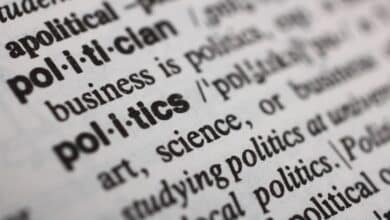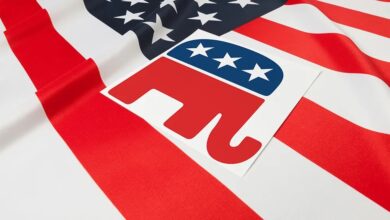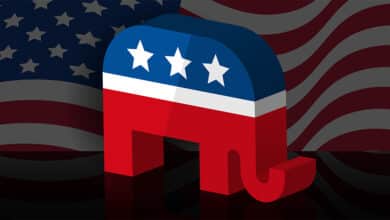The Strong Case for Religious Education
Late in 2022, governor-elect Sarah Huckabee Sanders announced her plan to nominate Jacob Oliva as secretary for the Arkansas Department of Education. The announcement drew praise from the Wall Street Journal and other outlets that see Oliva, who served as an education official under Florida Governor Ron DeSantis, as a capable leader who could help bring greater educational freedom to the Natural State.
Conversely, the announcement drew ire from the likes of Max Brantley, senior editor of the Arkansas Times. Brantley bemoans and bewails the possibility that a robust system of private school choice will yield “millions in handouts to unaccountable private religious schools.” His yellow journalism is dripping with derision for parents, who would be empowered to use school choice to hold the education system accountable.
Contrary to Brantley’s doomsday Chicken Littles, Arkansas should rejoice over the prospect of public support of private schools, including religious ones, as such a system is entirely consistent with the liberal principles of a republican society and gets us closer to our founders’ idealistic vision for education.
Founding Fathers’ Vision for the New Republic
Public support for religious education is as old as public support for education in America. The oldest provision for public education in the colonies was the Old Deluder Satan Law of 1647, which imposed a tax for the wages of a schoolteacher or to fund a grammar school. The purpose of education, according to the law, was to promote learning and knowledge of the Scriptures.
Prior to the ratification of the Constitution, the Founding Fathers’ vision for an education system in the new republic assumed close integration with religion. Many of the republic’s leaders considered it an indispensable duty for the civil government to support and encourage religion. The delegates of the Second Continental Congress, on the basis that “true religion and good morals are the only solid foundations of public liberty and happiness,” resolved on October 12, 1778, that each state would “take the most effectual measure for the encouragement thereof.”
Abraham Baldwin, later one of the signers of the Constitution, believed fervently that the Christian religion was essential to maintaining a free society. It was therefore a necessary duty of republican governments to support religious institutions. “As the knowledge and practice of the principles of the Christian religion tends greatly to make good members of society, as well as good men, and is no less necessary to present, than to future happiness,” Baldwin helped the state legislature of Georgia draft in 1785, the Christian religion “its regular establishment and support is among the most important objects of legislature determination.”
The Northwest Ordinance, passed by Congress under the Articles of Confederation in 1787, made public support of religion official in part through its support of schools. Given the close connection between religion, morality, and knowledge maintained by many at the time, there would be little doubt that publicly funded schools would be religious: “Religion, morality, and knowledge, being necessary to good government and the happiness of mankind, schools and the means of education shall forever be encouraged.”
Early Republic
This religious fervor continued after the ratification of the Constitution. In his “Farewell Address,” George Washington noted several times the importance of promoting religion in the new republic: “Of all the dispositions and habits, which lead to political prosperity, Religion and Morality are indispensable supports.” Washington urged the nation’s leaders not to “indulge the supposition, that morality can be maintained without religion.” Thus, a religious education is not a threat to a democratic republic, but an essential buttress: “Whatever may be conceded to the influence of refined education on minds of peculiar structure, reason and experience both forbid us to expect, that national morality can prevail in exclusion of religious principle.”
To entrust a people with tremendous political power presupposes their moral character. Civic education would have to promote moral character in order to prepare an electorate for active participation in a democratic society. As John Adams once wrote, “Our Constitution was made only for a moral and religious People. It is wholly inadequate to the government of any other”
Thus an education system appropriate for a democratic republic would have to be intimately integrated with religion. According to Benjamin Rush, one of the signers of the Declaration of Independence, “the only foundation for a useful education in a republic is to be laid in Religion. Without this there can be no virtue, and without virtue there can be no liberty, and liberty is the object and life of all republican governments.” Indeed, empirical evaluations of civics education support Rush’s thesis. Schools of choice, including religious private schools, have a comparative advantage over public schools in promoting civic virtues such as tolerance, voluntarism, and political participation.
Modern Republic
Admittedly, a string of Supreme Court decisions in the 20th century appears to diminish the connection between religion and education in the United States. The Supreme Court ruled against prayer in public schools in Engel v. Vitale in 1962 and against Bible reading in public schools in Abington School District v. Schempp in 1963. But a contextual examination of decisions that preceded Engel and Abington, as well as more recent decisions in both state and federal courts, show a clearer pattern of legal jurisprudence defending religious liberty in education.
If anything, recent Supreme Court decisions have strengthened the case for public support of religious schools. In Zelman v. Simmons-Harris (2002), the court held it did not violate the Establishment Clause for families to use scholarships awarded by the Ohio Educational Choice voucher program at private religious schools. In Espinoza v. Montana Department of Revenue (2020), the Court extended their reasoning in Zelman to say that a state scholarship program cannot discriminate against a religious school, theoretically opening the door to religious charter schools. A follow-up to Espinoza, in Carson v. Makin (2022), the Court ruled that restrictions on the use of scholarships violated the Constitution’s Free Exercise clause.
Similar logic was applied in Trinity Lutheran v. Comer (2017). When a public program providing playground resurfacing materials denied its resources to a early childhood program, simply because of its affiliation with a church, the Court held that public resources could not be denied on the basis of religion without violating the First Amendment.
State courts have handled challenges to private school choice programs in similar fashion. West Virginia’s education savings account, the Hope Scholarship Program, was challenged on the grounds that it allowed families to use public funds at religious private schools. The West Virginia Supreme Court of Appeals upheld the constitutionality of the program. Similarly, Arizona’s Court of Appeals ruled unanimously that its education savings account program was not unconstitutional, and the state supreme court determined that it would not consider an appeal to the case.
Concluding thoughts
Religious education has a strong philosophical, historical, and constitutional basis. The Founding Fathers believed that a religious and moral education was imperative to sustain a democratic republic. Recent court rulings at both the federal and state levels bear out the constitutionality of private school choice programs, which allow families to use scholarships to send their children to private religious schools. Research bears out that many parents prioritize a religious or moral education when choosing a school for their children. The freedom to do so should be celebrated.






